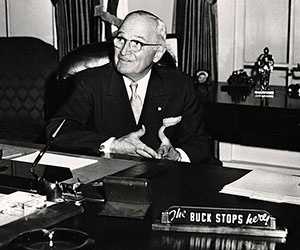“Don’t Panic.
Arthur Dent (The Hitchhiker’s Guide to the Galaxy.)
It’s the first helpful or intelligible thing anybody’s said to me all day.”

This section is designed for school leaders, so let’s get the difficult bit out of the way first, shall we?
We know that the think1265 campaign places pressure on Principals and school leaders, and we know that they are already under considerable pressure from every direction. We know that some headteachers might be upset by our campaign, and we understand that the last thing many Principals may need is a group of teachers holding them to account for their handling of Directed Time budgets. We know that most school leaders are working all hours to try and hold things together for their school, against the backdrop of a cost of living crisis and decades of underfunding of education. We know that some Principals may even be angry at our campaign, asking who do these teachers think they are? to ask schools and school leader to implement DTBs and workload agreements properly.
We get it. We really do.
But there are four critical reasons that everyone in the education system should implement Directed Time budgeting and the associated workload agreements properly at last:
1. It’s a Principal’s Professional Duty.

It’s the professional duty of Principals to do DTBs and follow TNC agreements properly. Failure to do this leaves Principals open to difficult to defend grievance procedures from staff, and possible disciplinary procedures from their employers
2. It benefits learners.

Central to Directed Time budgeting is the concept of focusing teachers’ professional skills on tasks which most benefit learners. If you want your school to grow academically and for students to exceed expectations, use your teachers’ time where it does the most good for the children in your care.
3. It involves Health and Safety law.

Directed Time budgeting and associated TNC workload agreements are also designed to minimise the stressors caused by excessive workload. Stress at work is an established risk under Health and Safety legislation, and failure to implement legally agreed mechanisms to minimise these stressors on your staff leaves the Principal vulnerable to action under Health and Safety legislation.
4. It builds better working relationships.

Manageable workloads mean happier staff. This leads to fewer absences, more impactful teaching and learning, fewer issues with retention and retainment, more collaborative relationships with teacher representatives and unions, and – eventually – a growing reputation as a school that teachers want to work in, and parents want their children to attend.
We look at each in turn below.
1. Proper and effective DTBs are a Principal’s professional duty.
The professional obligation on Principals to produce a Directed Time budget comes from the 1987 Jordanstown Agreement, as amended, and is spelled out categorically in TNC 2011/8 appendix III section 1.3:
“The Principal is responsible for determining a time budget to each member of the teaching staff, giving due regard to the individual responsibilities of each teacher. The Principal should seek to agree with each teacher the range of activities/duties which that teacher will undertake and the amount of time which that teacher will spend on each of these. The time budget should be distributed prior to the commencement of the teaching year.” (Bold added.)
When it comes to Directed Time budgets, the buck stops with the Principal.

DTBs must be individual, agreed with the teacher, include the range of activities / duties the teacher will do, and the amount of time allocated to each of these tasks.
Failure to fulfil this instruction is a breach of the workload agreement, and leaves a Principal open to grievance procedures which will be difficult to defuse if they have not conducted the DTB process properly.
The Education Authority training on producing a Directed Time Budget (published after the 2020 workload agreement) clearly states that:
“it is the professional duty of principals in all schools to ensure a Directed Time budget is prepared for, and gives due regard to, the individual responsibilities of each teacher in their school.”
Again, this is very clear. Doing individualised Directed Time budgets for each teacher is the professional duty of the Principal. If a Principal fails to do this then they are vulnerable to disciplinary action from their own employer for failing to complete their contractual duties.
2. Effective DTBs direct teachers’ time to where it helps students most.
The process of time budgeting gives Principals an opportunity to effectively consider which tasks will give students the greatest value for the time and resource expended on that task, while also advancing the school improvement priorities, and DTBs are therefore a key tool to strategically achieve medium-term goals.
“…Teachers should be free of all unnecessary workload demands in order to focus on their pupils.”
TNC 2024/2, Introduction.
When it comes to managing finances, Principals make tough decisions daily in order to stay within the financial resources at their disposal, and how they manage these resources is a key performance indicator for that Principal. Managing time through Directed Time budgeting is no different. Running through the training from EA on time-budgeting is the warning:
“Principals should plan the use of teachers’ hours carefully in conjunction with the school improvement priorities, the school calendar and the annual schedule of meetings. If they do not, there could be a danger that staff will exhaust their obligatory hours before the end of the school year.”
Getting time-budgeting wrong could have catastrophic effects for staffing in the latter months of the year, as a teacher who has exhausted their hours can no longer be directed to work unless on an overtime / separate contract basis. This year, more than any other year previously, you should expect your staff to be counting their directed time hours carefully.
Finally, how Principals manage the directed time of their staff in order to achieve their school improvement priorities will be a standard question from ETI. If DTBs are either not done, or done poorly, this will be a difficult question to answer, and poor time-budgeting would reflect poorly on the effectiveness of school management.
3. Principals are legally liable for the welfare of their staff.
Excessive workload affects staff welfare. This can range from moderate stress during busy times, to burnout and emotional collapse caused by workload not being managed properly.
Burnout is a recognised medical condition, and it is caused principally by excessive workload pressures from toxic working practices.
Part of the purpose of Directed Time budgeting, along with the workload agreements subsequent to the Jordanstown Agreement, is to “tackle workload”, so these contractual agreements clearly have health and safety implications.
Sections 1.2.6 and 1.2.7 of TNC 2024/2 specifically quote the Health and Safety at Work (NI) Order 1976, placing an obligation on employers to carry out “purposeful work” to promote Teachers’ health and welfare* going forward.

The simplest way of doing this is to ensure that Directed Time budgets are done properly, with sufficient time being allocated for the tasks teachers are asked to do, and to make sure “that workloads will be such that contractual duties will normally be completed within contractual hours…” (TNC 2024/2 1.2.2.ii) A failure to ensure that staff workload is not harming staff welfare is just as much a failure to follow Health and Safety law as not having fire extinguishers in classrooms.
*Note – “welfare” is not the same as “well-being”, and carries legal weight under Health and Safety law. Welfare refers to the emotional, physical, and mental state of an individual, while well-being refers to an individual’s broader sense of comfort and happiness. Though connected, well-being could be seen as the daily weather, while welfare is the prevailing climate over a longer period of time. While a sunny day (or scones in the staffroom) might lift a person’s well-being for that day, it does little to improve damage to a teacher’s emotional, physical and mental state caused by chronic overwork through poorly managed workload.
4. Managed workloads build better working relationships.
After a decade and a half of austerity, and against the backdrop of a cost of living crisis which has made everyday bills much more expensive than they used to be, teachers will continue to fight for better pay for the foreseeable future. Principals can do nothing about this, and they deserve better pay and conditions themselves!
However, a central part of recent industrial disputes have been workload. The issue of excessive workload fuelled the move to ASOSA which finished in April, as teachers tried to claim back their work-life balance through industrial action because it wasn’t getting returned to them through properly managed time budgets in schools.
think1265 believe that teacher workload will not be the huge bugbear it once was if only all of us – school leaders and school teachers – finally implement the existing agreements and mechanisms to manage workload properly. By doing this we can eliminate one of the key stressors leading to further industrial action, particularly ASOSA, as well as promote recruitment and retention in our schools.
Managing workload properly will reduce staff stress, which reduces staff illness and absence, including costly long-term staff absence.
Rested staff who are enjoying a positive work-life balance outside of school will be more motivated and impactful in their classroom. This will improve learning outcomes and the underlying atmosphere within a school. Challenging circumstances are easier to effectively deal with when staff are rested and supported, so behavioural issues can be managed and improved better as a result of properly management workloads.
Schools who look after their staff and actively support them to have a positive work-life balance by facilitating them to get their work done during working hours, will build a reputation across the sector as the place teachers want to work. The leaders of these schools will be seen as gold standard Principals, demonstrating positive working relationships across their staff body while improving student outcomes at the same time.
So the choice is clear: implementing DTBs and workload agreements properly can improve staff welfare, student outcome and the reputation of an organisation, while also reducing cost of cover and recruitment. It ensures that Principals are covered with regard to their obligations under Health and Safety, and that they are complying with their own professional duties. It reduces the potential for local action about workload, including grievances and Health and Safety complaints, and builds a happier, more impactful, staff body.
Failing to implement DTBs and workload agreements properly leaves Principals in potential breach of their contractual duties, their Health and Safety obligations, and their staff management responsibilities under school improvement plans. It costs more through illness, cover, recruitment and retention, and risks grievances and localised industrial action – all of which further damage the school reputation and further exacerbates the workload vicious cycle.
School teachers and school leaders are on the same side, working toward the same goal, and we solve problems together every day.
Let’s solve the workload problem together as well.
Summer break in:
(Note – you’re not paid for summer holidays, so leave your work on your desk.)
Designed and produced by teachers and trade unionists. While every effort has been made to ensure the accuracy of information on this site, teacher and union representatives are advised to contact their own trade union reps before taking action which might leave them in breach of contract. Think1265 uses WordPress, which uses cookies for functionality. Think1265 does not use any cookies for any purpose other than those used by WordPress for site functionality, and no personal information is retained or processed by think1265 without users’ specific permission. © 2025 think1265
